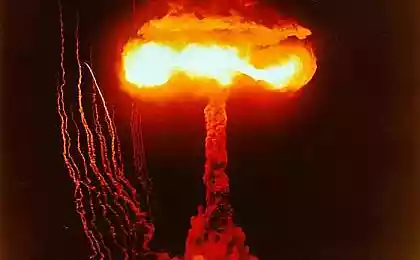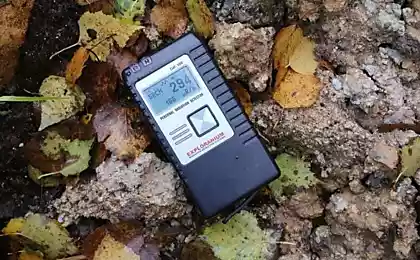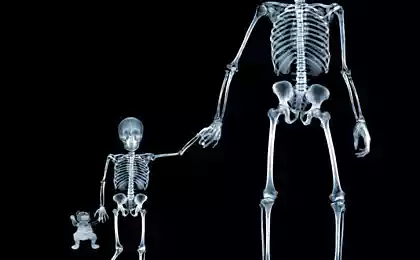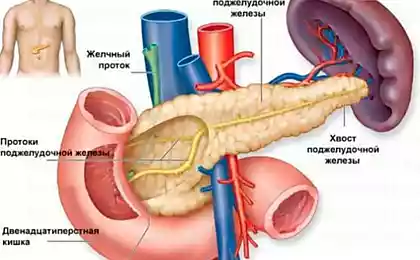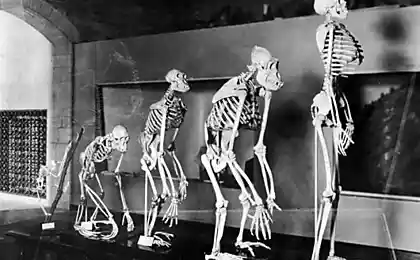511
In the blood of monkeys near Fukushima showed signs of radiation exposure
Researchers have found wild monkeys living in forests near Fukushima, lower numbers of red blood cells and high levels of cesium in the body, than their relatives from Northern Japan.
Experts studied blood changes and signs of radiation exposure in 61 monkeys living 43 miles from Fukushima. The results showed that the primates had lower levels of red and white blood cells and other blood components, compared to 31 monkey from regions in the North of Japan. The researchers also found radioactive cesium in the muscles of Fukushima monkeys, from 78 to 1778 becquerels per kilogram, which is not found North of primates.
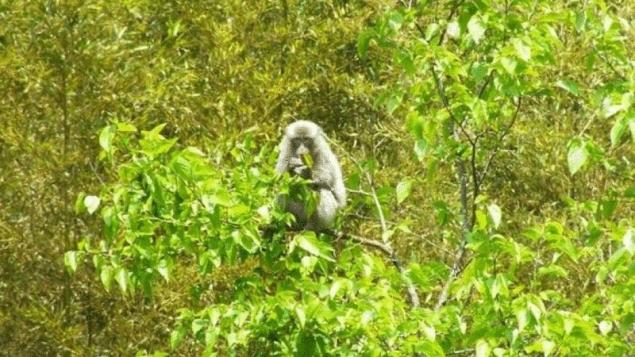
Biologist Tim Musso (University of South Carolina) said: "the findings do not contradict what levels of red blood cells and hemoglobin, found our group in children living around Chernobyl. Whether these effects persist in the future, they increase or decrease, no one knows."
The experts also found that among juvenile monkeys, higher concentrations of cesium in the muscles, and lower levels of white blood cells. These data suggest that younger monkeys are much more vulnerable in relation to radioactive materials, the researchers say. In addition, the levels of radioactive cesium found in animals, higher than in the human population in the area. Musso said, "This may be because monkeys eat the fruits, mushrooms and insects, which are quite contaminated by radiation, so they probably get a much larger exposure than people who eat relatively healthy food."
Musso also added that more research is needed to confirm that low blood counts in monkeys, in fact, caused by radiation and not some other reasons. "It's hard to determine how dangerous these levels, because the effects of exposure to radioactive cesium are not known and further studies are needed to understand these and other consequences of radioactive material in the environment."
Source: nauka24news.ru/
Experts studied blood changes and signs of radiation exposure in 61 monkeys living 43 miles from Fukushima. The results showed that the primates had lower levels of red and white blood cells and other blood components, compared to 31 monkey from regions in the North of Japan. The researchers also found radioactive cesium in the muscles of Fukushima monkeys, from 78 to 1778 becquerels per kilogram, which is not found North of primates.

Biologist Tim Musso (University of South Carolina) said: "the findings do not contradict what levels of red blood cells and hemoglobin, found our group in children living around Chernobyl. Whether these effects persist in the future, they increase or decrease, no one knows."
The experts also found that among juvenile monkeys, higher concentrations of cesium in the muscles, and lower levels of white blood cells. These data suggest that younger monkeys are much more vulnerable in relation to radioactive materials, the researchers say. In addition, the levels of radioactive cesium found in animals, higher than in the human population in the area. Musso said, "This may be because monkeys eat the fruits, mushrooms and insects, which are quite contaminated by radiation, so they probably get a much larger exposure than people who eat relatively healthy food."
Musso also added that more research is needed to confirm that low blood counts in monkeys, in fact, caused by radiation and not some other reasons. "It's hard to determine how dangerous these levels, because the effects of exposure to radioactive cesium are not known and further studies are needed to understand these and other consequences of radioactive material in the environment."
Source: nauka24news.ru/

